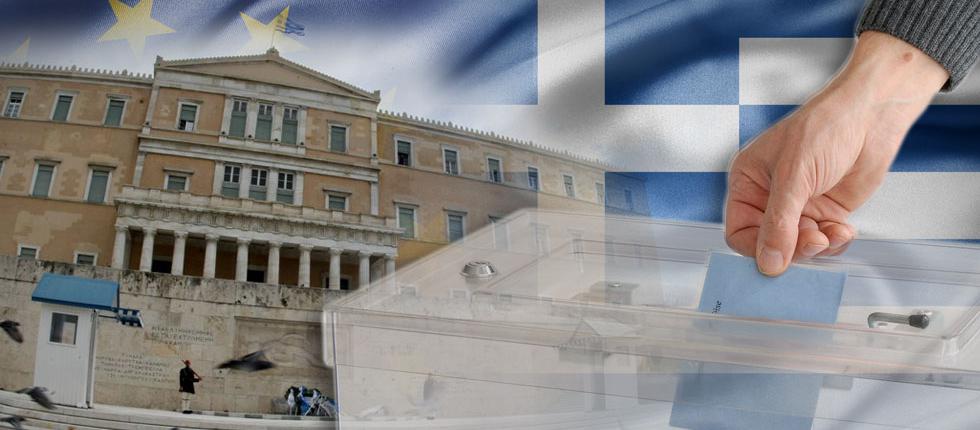
Greeks are preparing to head to the polls, evenly split ahead of the referendum to chart a new course in their five-year economic crisis.
“What is certain is that come Monday, Greece won’t be facing just massive economic problems; it will be a deeply divided country,” said Nikos Marantzidis, a pollster and professor of political science at the University of Macedonia in northern Greece. “If the economic situation deteriorates further, which it probably will, the divide will only run deeper.”
The Sunday vote on whether to endorse further budget cuts and tax increases comes in the most trying circumstances Greeks have faced in the euro era. Banks are shut, commerce is grinding to a halt, pensioners are coping with rationed payments, and Prime Minister Alexis Tsipras and his supporters are isolated.
Tsipras is urging a “no” vote on the terms demanded by creditors in exchange for a fresh bailout. European leaders have argued that only a “yes” vote will give Greeks a path out of economic misery.
Either outcome brings complications. It’s unclear how and if the European Central Bank could extend a further lifeline to Greek lenders, whose cash reserves are nearly exhausted, after a “no” result. Such an result would also make it harder for Greece to reach a new aid deal with creditors.
A “yes” could force the ouster of the Tsipras government and fresh elections, a possibility to which Finance Minister Yanis Varoufakis alluded on Thursday. And a result so close that it’s inconclusive — a strong possibility based on current polls — may only extend the current stalemate, which began when Tsipras called the surprise plebiscite on June 27.
Divided Nation
Competing demonstrations took over central Athens on Friday night, forcing hotels and shops to pull down shutters and closing main streets. Police estimated both Tsipras’s event, in Syntagma Square, and the counter rally at the Panathenaic Stadium each drew more than 20,000.
“On Sunday, we won’t simply be deciding to remain in Europe, we’ll be deciding to live with dignity in Europe,” Tsipras said from a stage in front of the Parliament building.
At the “yes” event, opposition leader Antonis Samaras said rejecting the bailout would be seen by creditors as a rebuke of the euro itself and would keep banks closed longer.
A poll commissioned by Bloomberg showed 43 percent of voters intend to reject the creditor proposals, while 42.5 percent will accept the conditions.
The survey of 1,042 people conducted by the University of Macedonia had a margin of error of 3 percentage points.
Voting is open from 7 a.m. to 7 p.m. local time Sunday and the result should be known before midnight.
In or Out?
Financial markets suggest the firewalls built since the debt crisis broke out in Greece in 2010 will hold. Since dropping on Monday after capital controls were imposed by Tsipras, the benchmark Euro Stoxx 50 Index has gained, as have 10-year bonds in Italy, Portugal and Spain.
Whatever comes after the referendum, the clock is ticking for Greece. The Athens Chamber of Commerce president estimates that the country has only about 500 million euros in cash reserves left in banks, meaning bank machines will be empty early next week without further ECB aid. Lines at ATMs continued on Saturday, as citizens waited to withdraw 60 euros each, the daily maximum permitted under the capital controls.
The Frankfurt-based central bank plans to start discussing whether to extend new funds to Greek banks on Monday.
‘Extend and Pretend’
Varoufakis this week blamed Greece’s creditors for forcing the banks to to shut just days before the vote. He said the country needs to stop a policy of “extend and pretend,” where the crushing debt load is rolled over and ignored.
Tsipras on Friday argued that the only way for Greece’s debt to become sustainable is for a so-called haircut of 30 percent on obligations and a 20-year grace period. The International Monetary Fund said in a report on Thursday the country needs 36 billion euros ($40 billion) from its European partners and better terms to stand on its own feet.
“There won’t be any happy ending regardless of the outcome,” Sergio Marchionne, the chief executive officer of Fiat Chrysler Automobiles SA, told reporters in Turin. “It doesn’t matter if ‘no’ or ‘yes’ wins.”
[Bloomberg]






